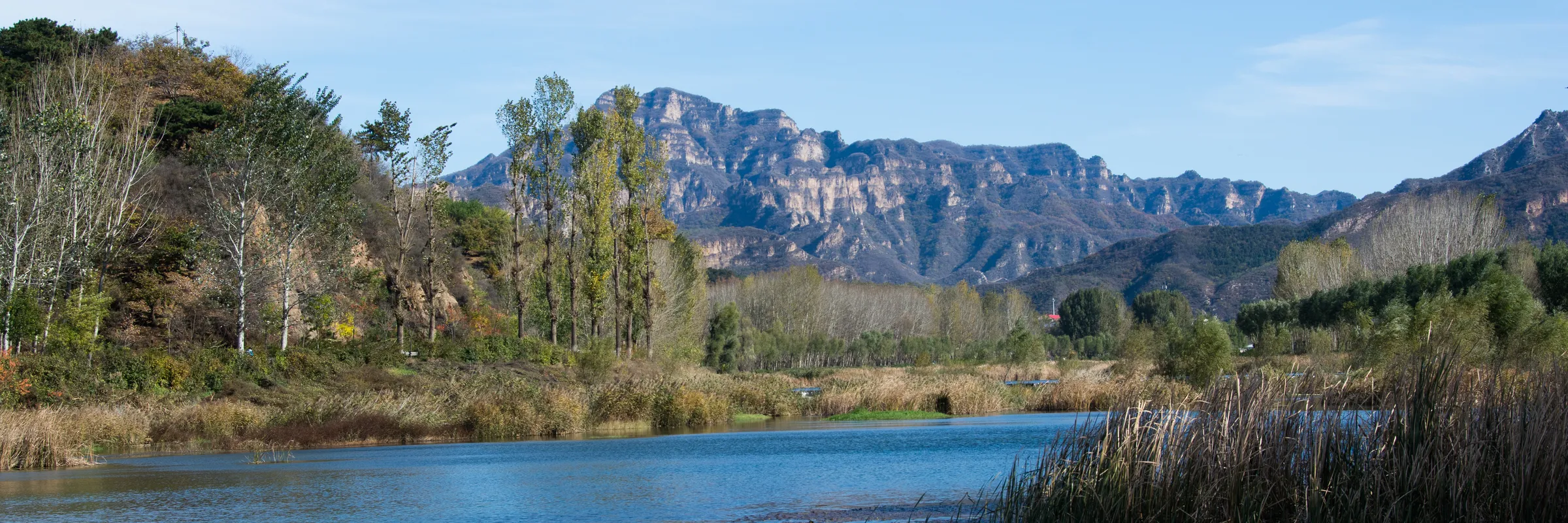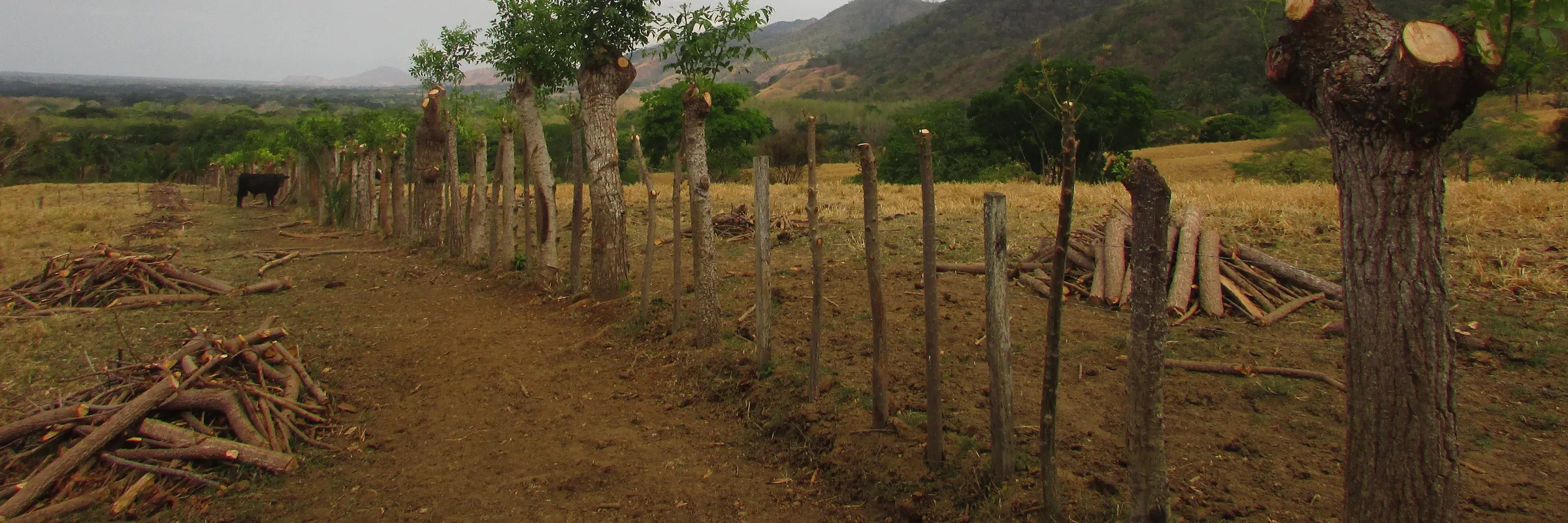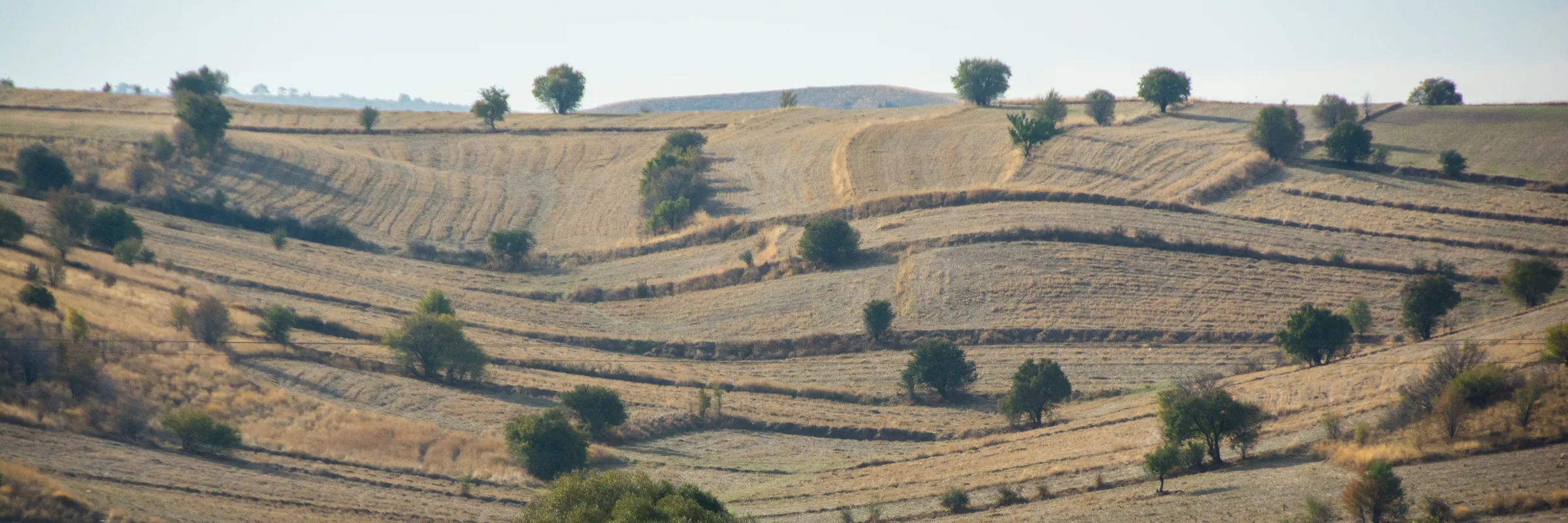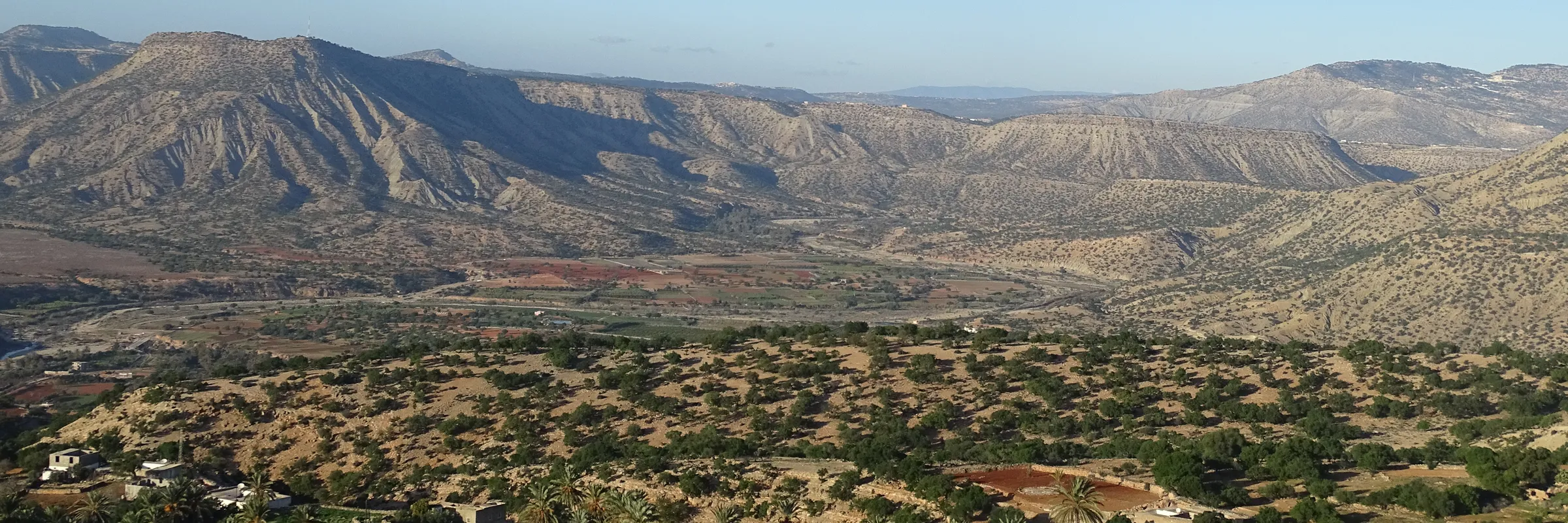Decision Support for Mainstreaming and Scaling Out Sustainable Land Management (DS-SLM)
The DS-SLM project contributes to arresting and reversing current global trends in land degradation by supporting 15 countries in mainstreaming and scaling out SLM.
- Home
- Decision Support for Mainstreaming and Scaling Out Sustainable Land Management (DS-SLM)
About the project
Roughly 52% of the world’s agriculture land is moderately or severely affected by land degradation. Another 2 billion hectares of land – an area twice the size of China – are thought to be seriously degraded, in some cases irreversibly. Land degradation reduces productivity and food security, disrupts vital ecosystem functions, harms biodiversity and water resources, and increases carbon emissions and vulnerability to climate change.
The goal of the DS-SLM project is to help halt and reverse global trends of land degradation. The project aims to help combat Desertification, Land Degradation, and Drought (DLDD) worldwide by scaling up Sustainable Land Management (SLM) practices based on evidence-based, informed decision-making.
DS-SLM seeks to increase the provision of ecosystem goods and services and to enhance food security in countries and regions affected by DLDD. The project does this by promoting SLM, integrated resource management, and efficient use of natural resources.
The DS-SLM project is financed by the Global Environment Facility (GEF) and coordinated by the Food and Agriculture Organization (FAO) in close consultation with Executing Agencies in 15 countries and the Centre for Development and Environment (CDE) hosting the World Overview of Conservation Approaches and Technologies (WOCAT) Secretariat.
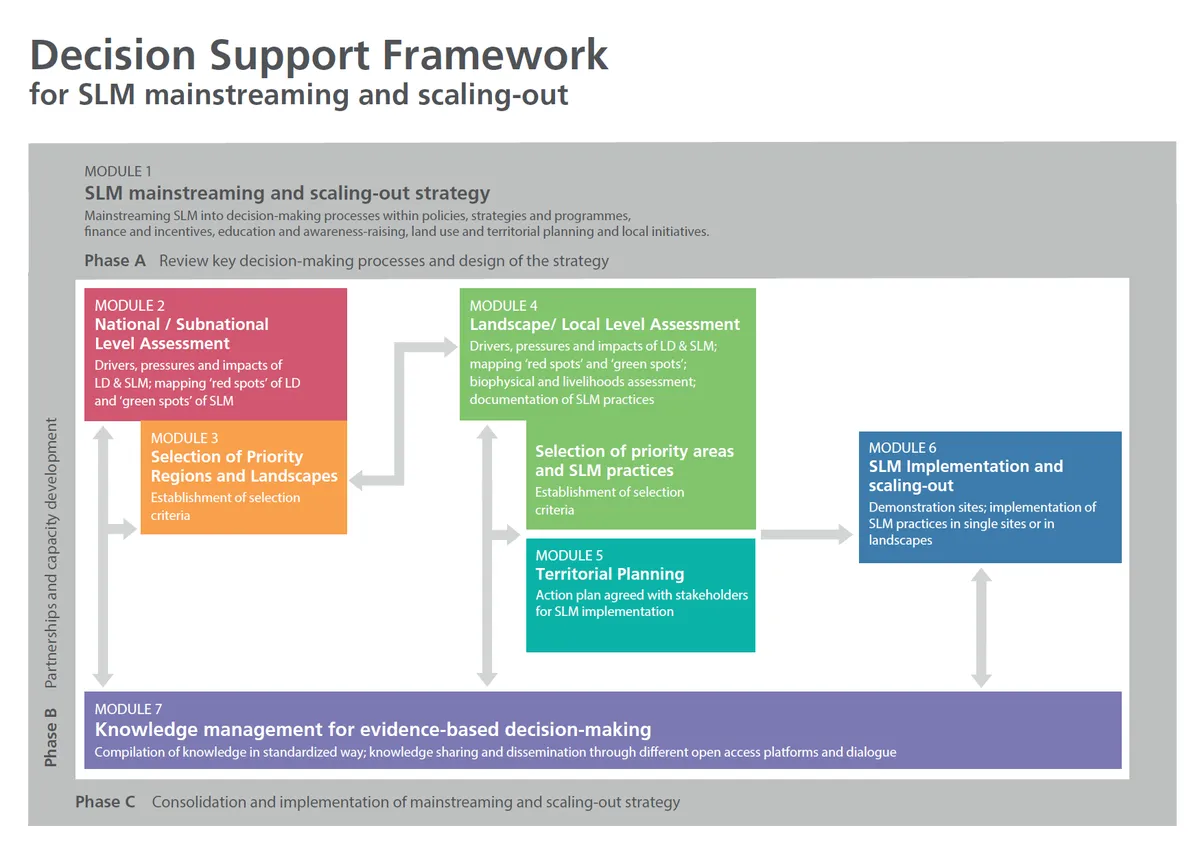
Project results
The projects results for each country can be seen on the single country pages which are still work in progress.
The SLM practices evaluated and partly implemented in DS-SLM are documented in the Global WOCAT SLM Database.
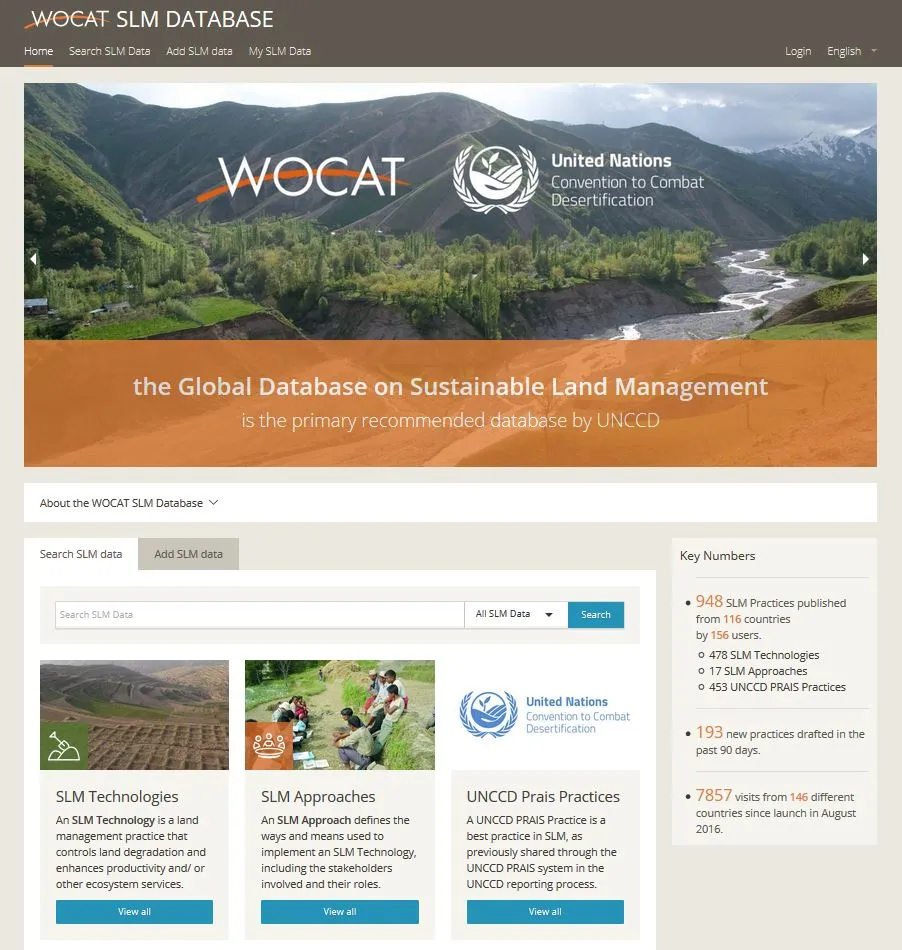
SLM practices of DS-SLM documented in the Global WOCAT SLM Database.
Final Publication and Guidelines with Country Insights

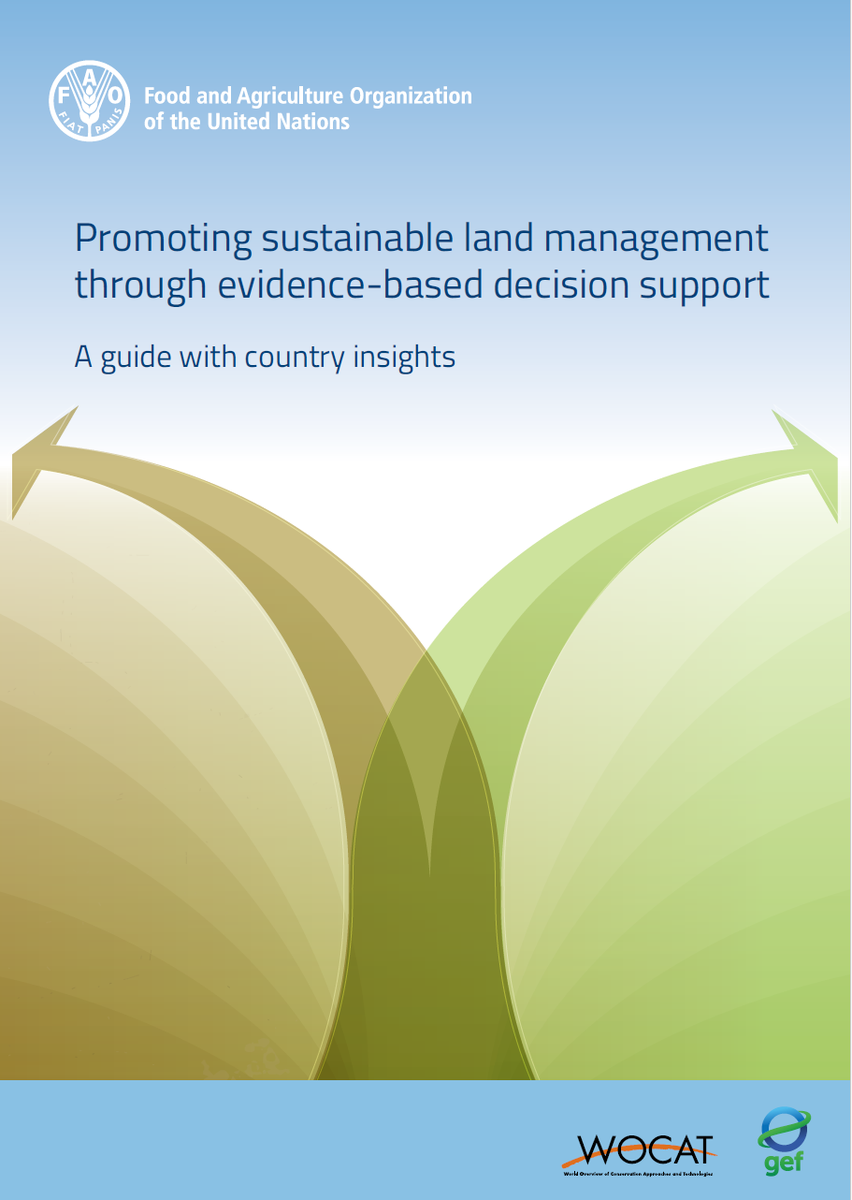
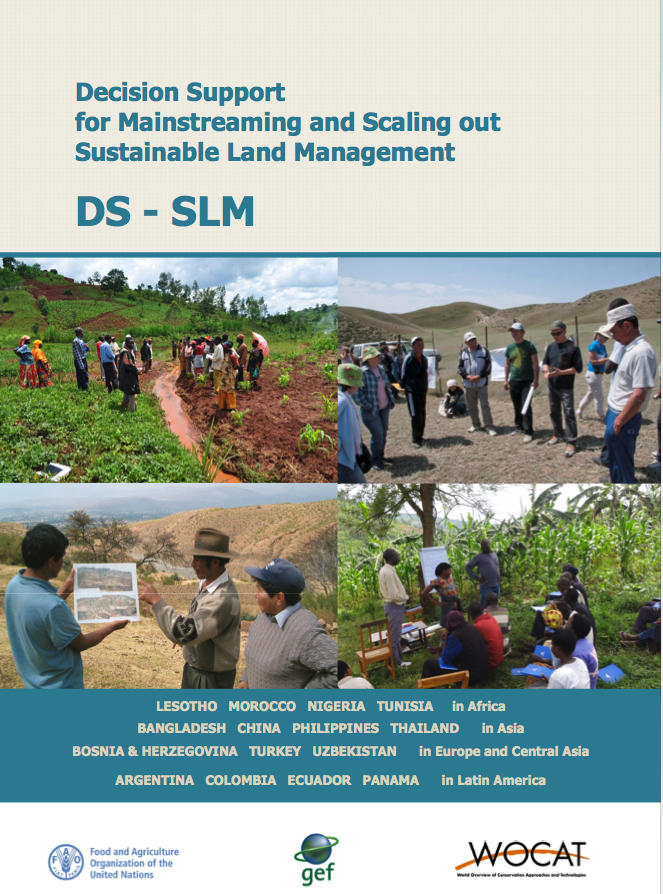
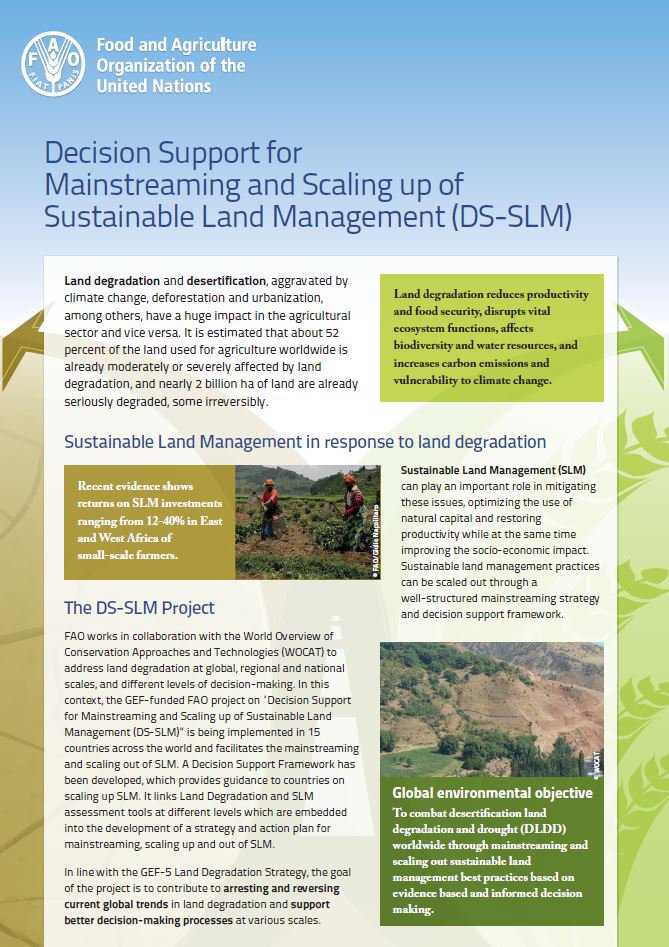
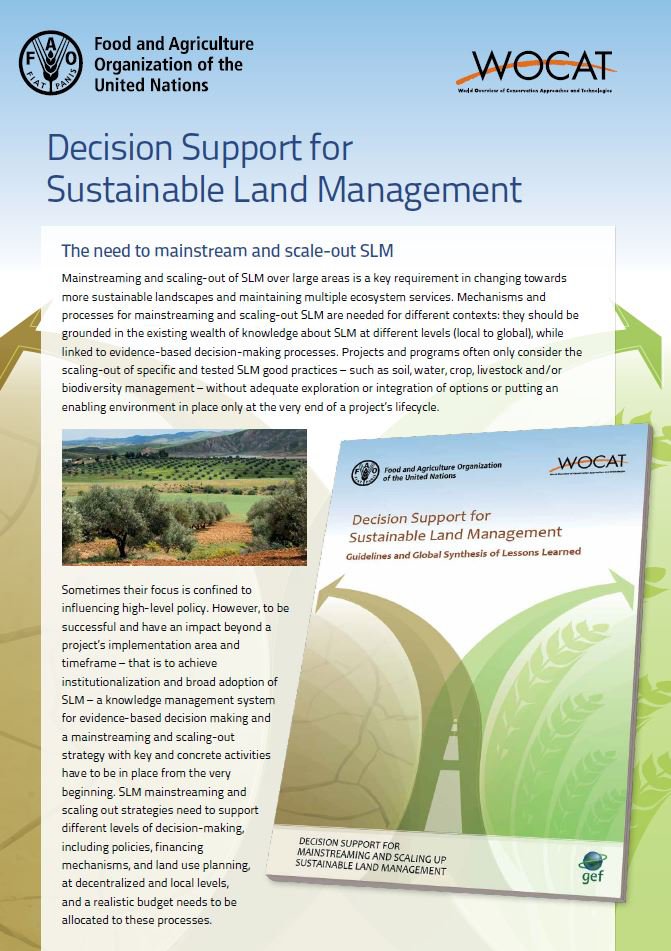
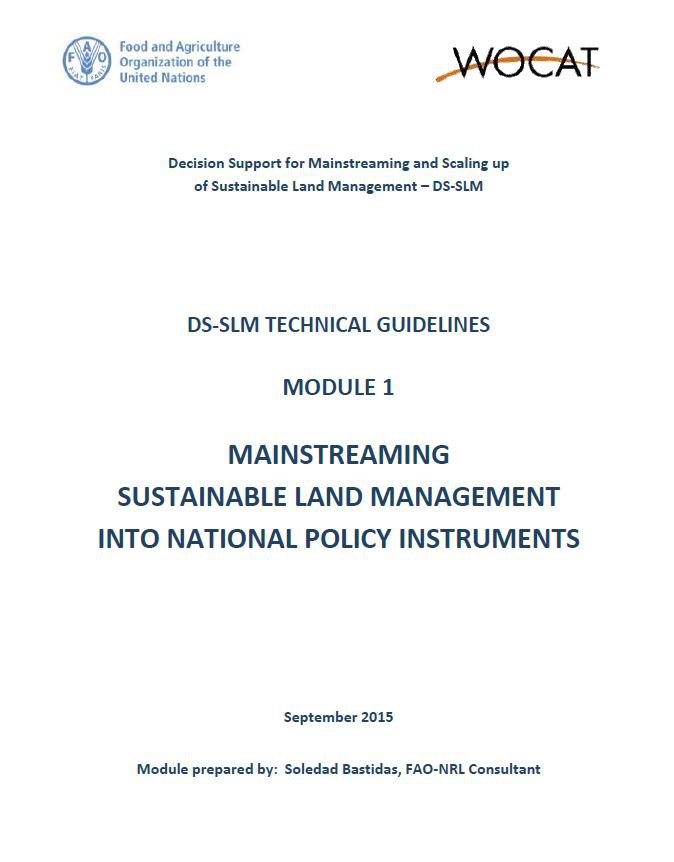
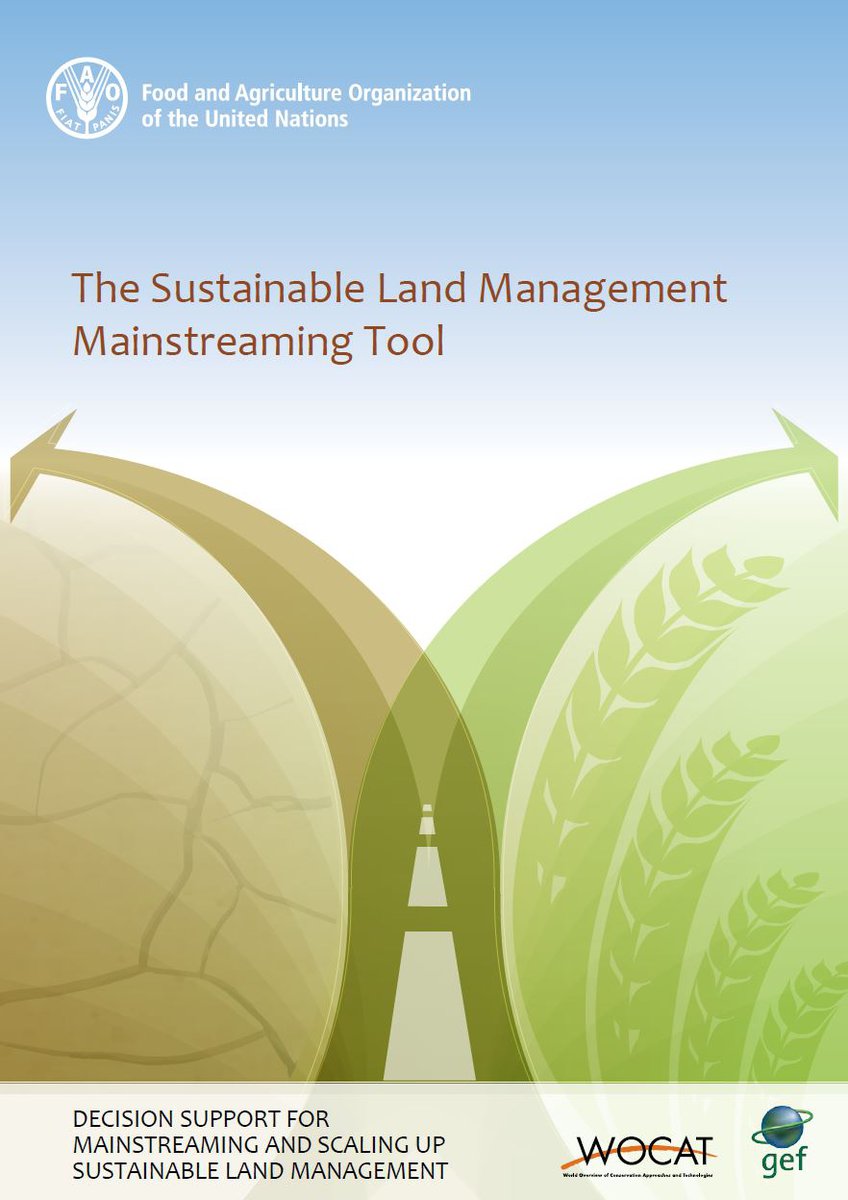
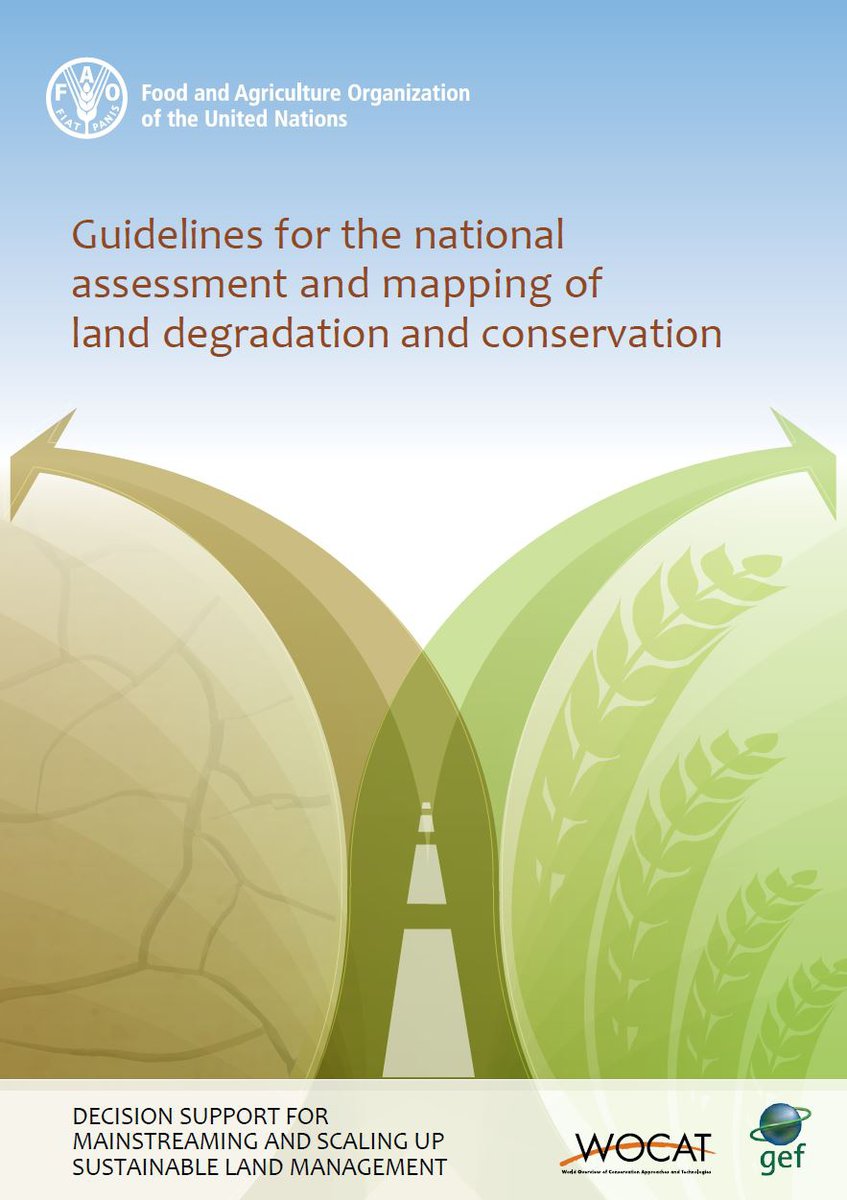
Presentations
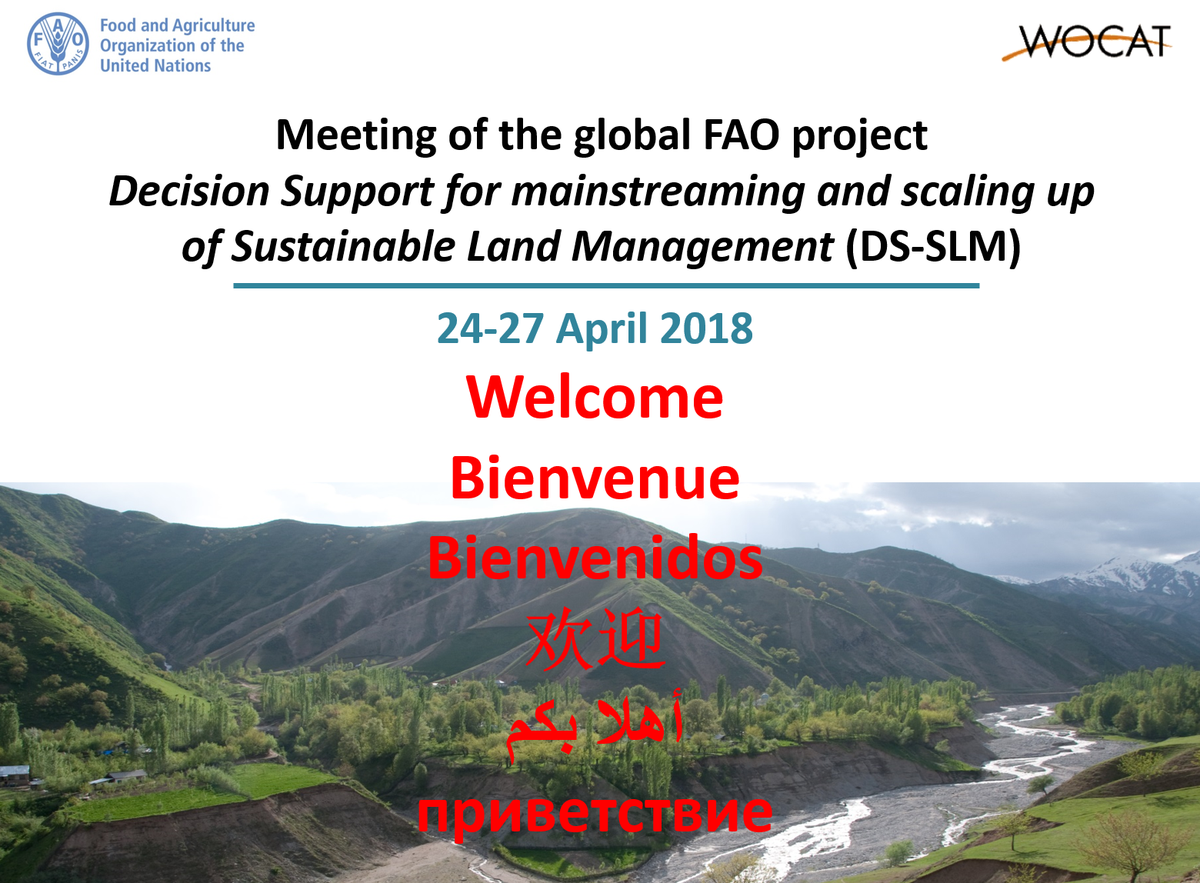
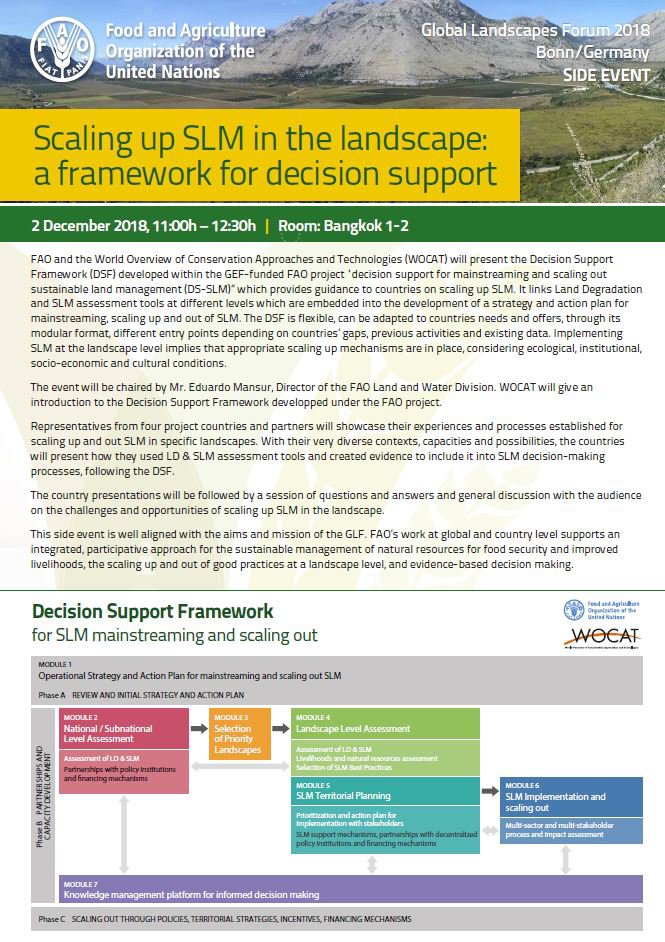
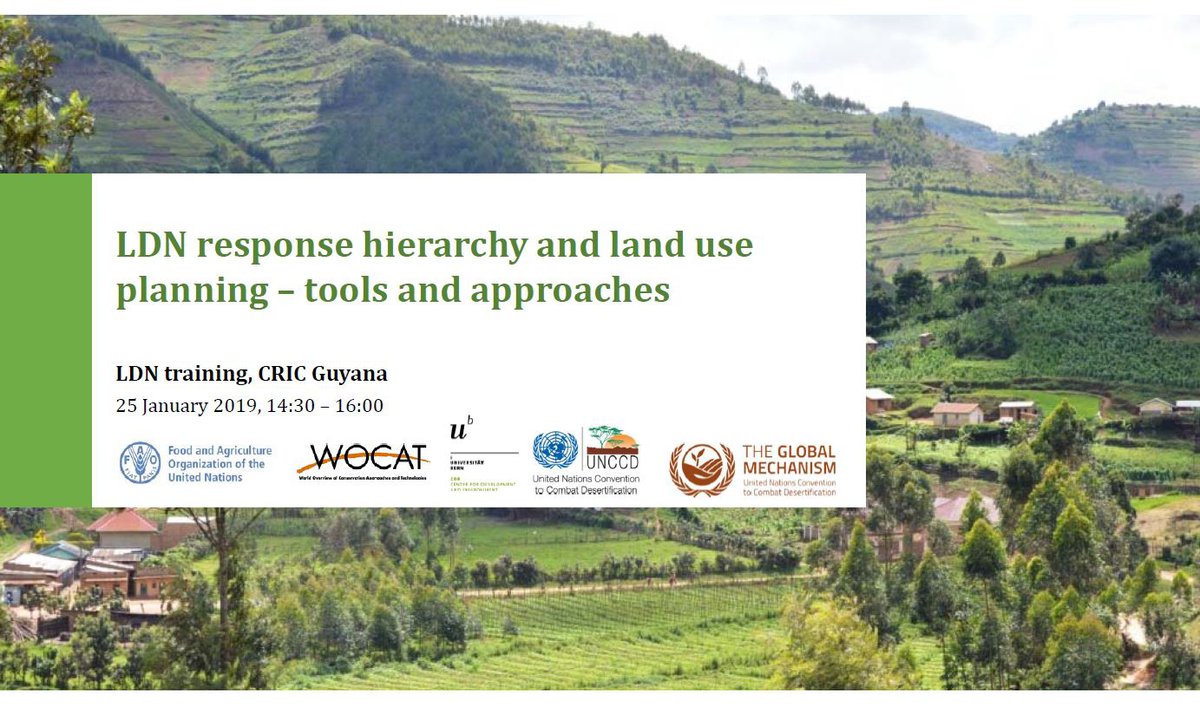
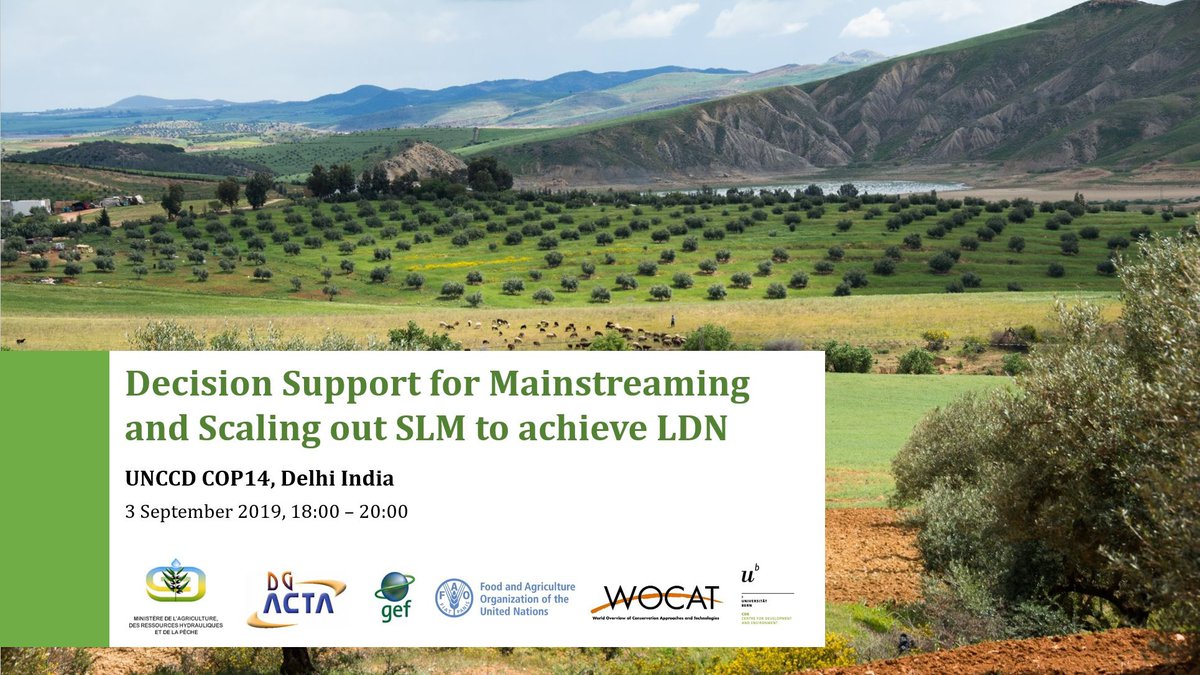
Selected country publications
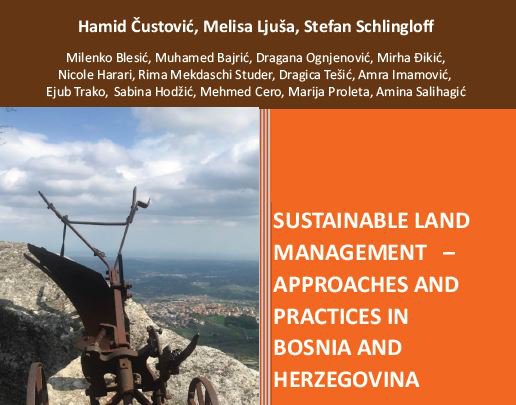
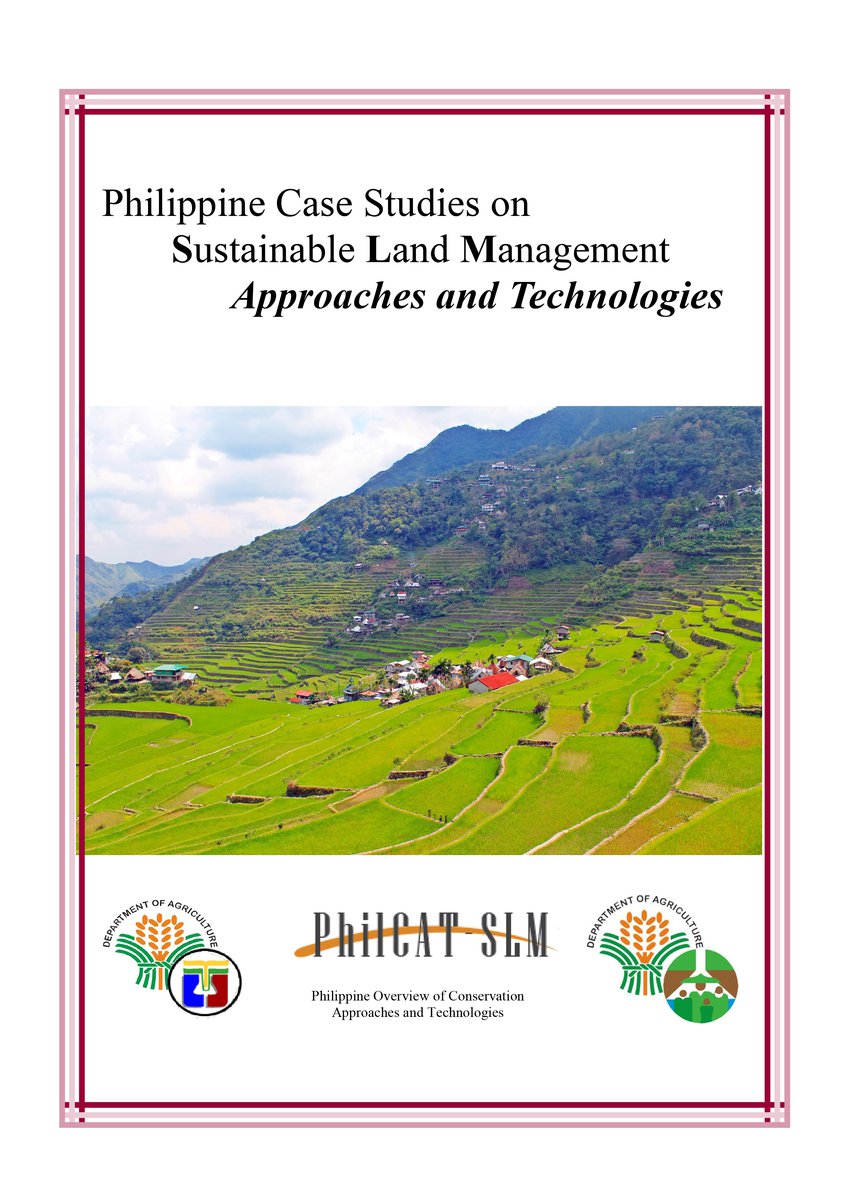
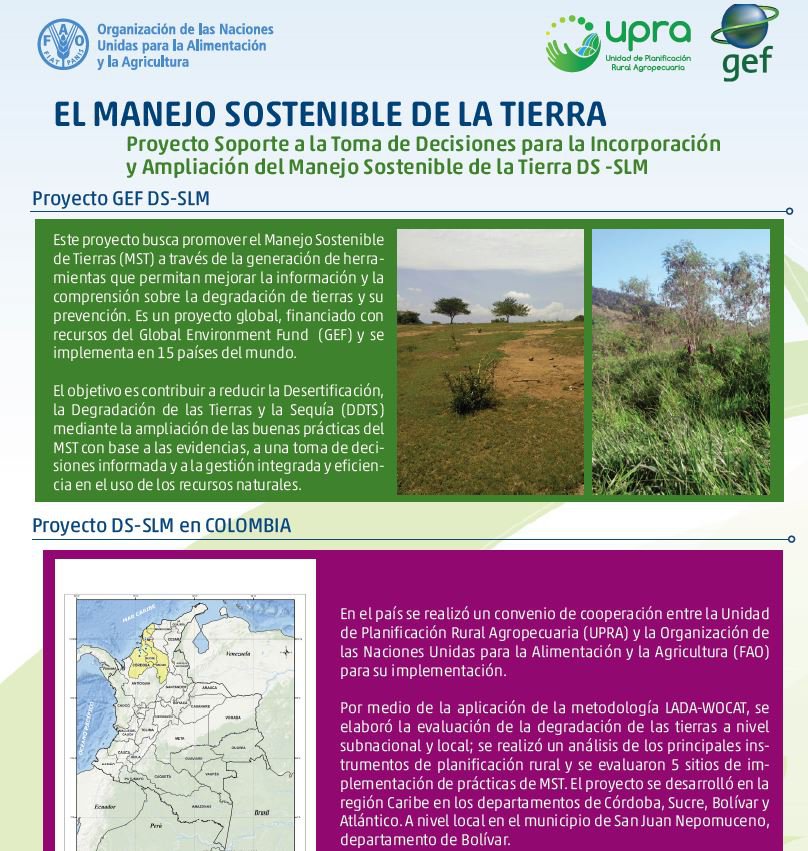
Videos from project countries
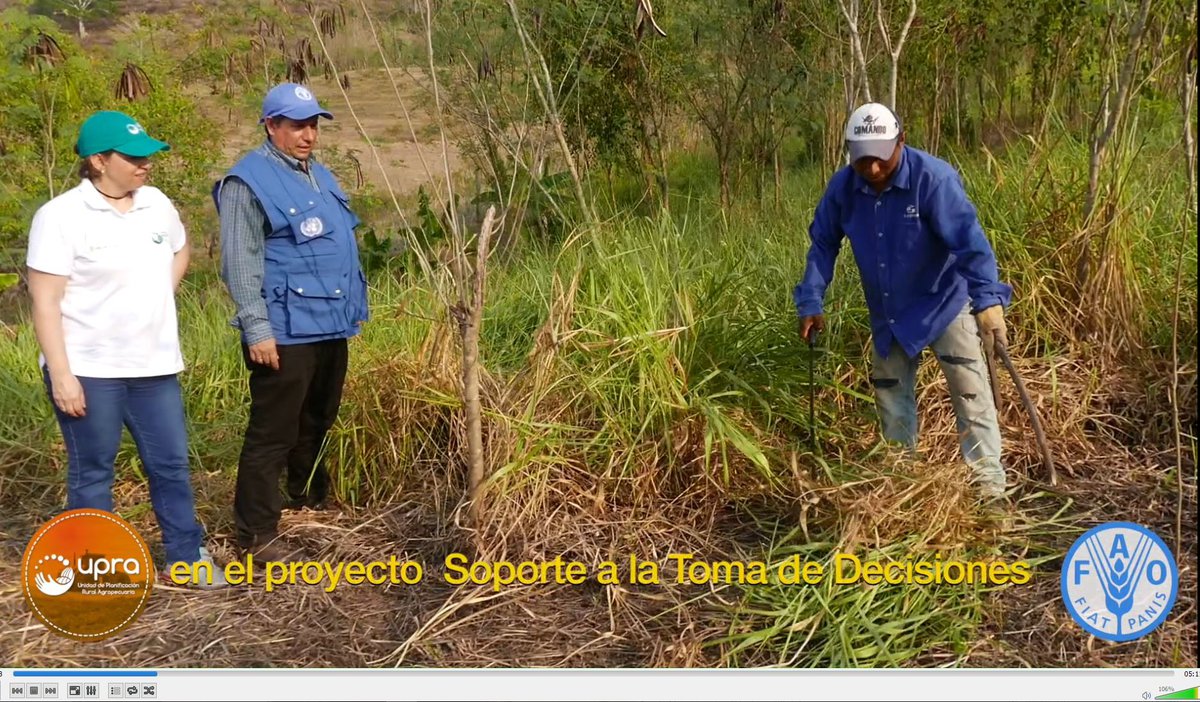
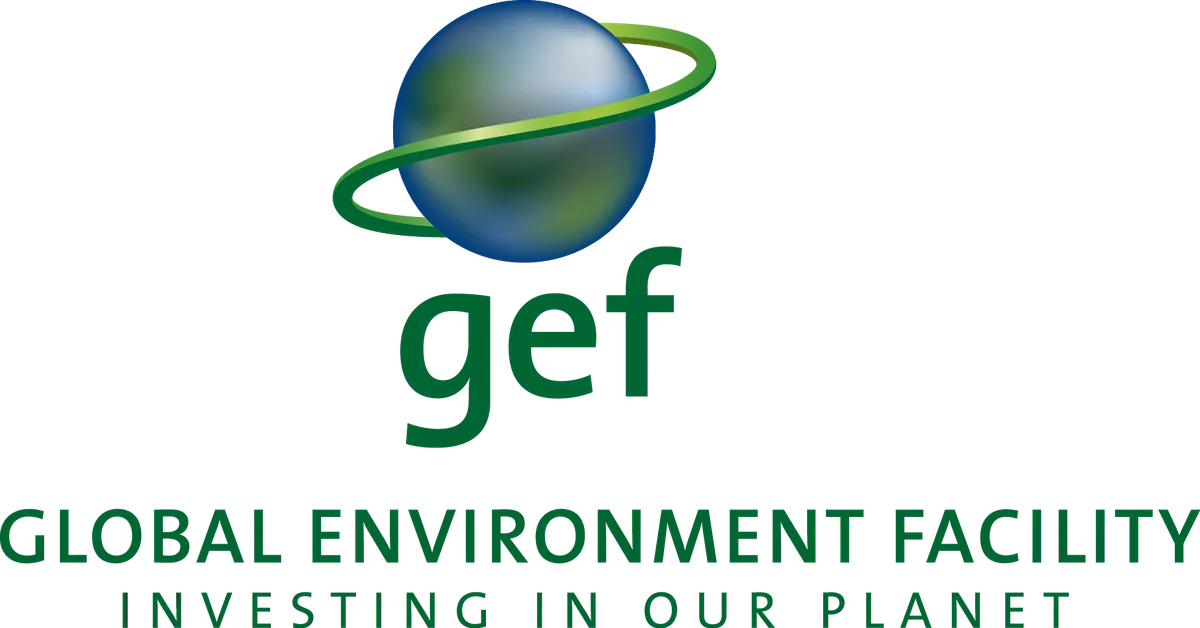
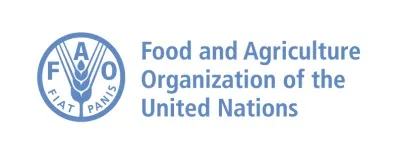
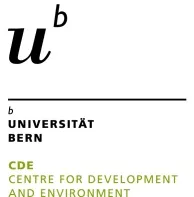
Contact
 Italy
ItalyProject duration
2015 - 2019
